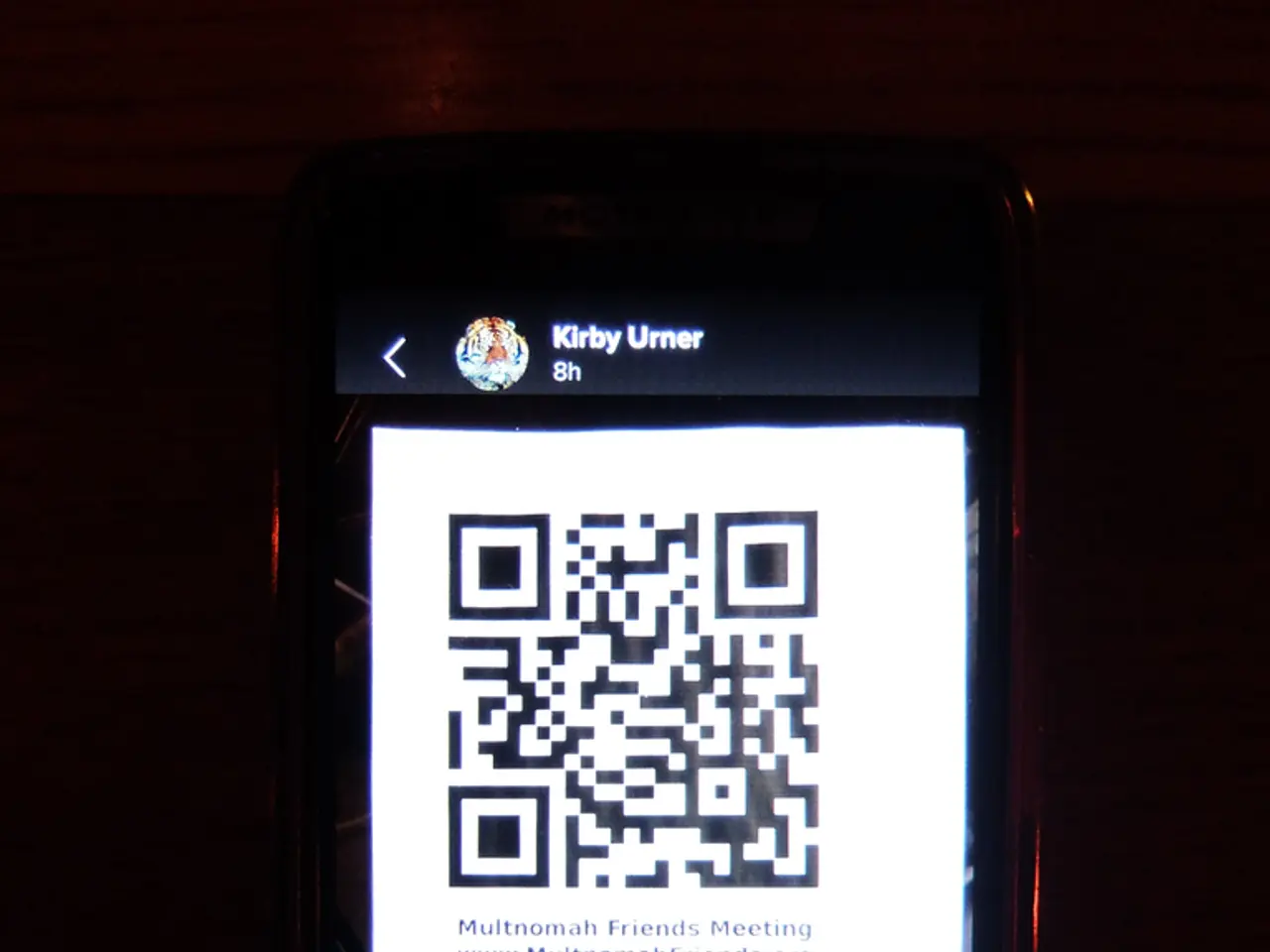Uncovered: QR Codes Carry Spyware, FBI Issues Urgent Alert for Smartphone Users Nationwide
In a recent warning, the Federal Bureau of Investigation (FBI) has highlighted a new form of cyber threat that targets smartphone users - the "brushing scam" that exploits QR codes. This scam, which is said to be impossible to detect by traditional means, puts millions of Americans at risk.
The brushing scam works by sending unsolicited packages with QR codes. When these codes are scanned, they redirect users to fraudulent websites. These websites may request personal and financial information, prompt the download of malicious software, or lead victims to fake payment portals. Once compromised, attackers may gain access to contacts, install spyware, and siphon sensitive credentials without the victim's knowledge.
To protect yourself from this scam, the FBI advises skepticism and caution. Here are some best practices:
- Avoid scanning QR codes from unsolicited packages or unknown sources. Criminals often send packages with QR codes designed to steal personal and financial information or install malicious software on your phone.
- Be cautious about granting permissions or providing any personal/financial data after scanning a QR code, especially if it comes from an unknown origin.
- If you suspect you are targeted by a brushing scam, secure your online accounts by changing passwords, reviewing your accounts for suspicious activity, and requesting free credit reports from the three major credit bureaus (Equifax, Experian, and TransUnion) to detect fraud.
The convenience offered by QR codes comes with a new gateway for fraud when scanning codes from unknown origins. To enhance control over what your device interacts with, disabling the QR code scanning feature on smartphones can reduce the risk of unintended scans from unknown or suspicious sources.
Here's how to disable QR code scanning on various devices:
- Samsung Galaxy devices: Open the default Internet app, access the menu, go to Extensions, find the "QR code reader" option, and toggle it off.
- Android devices: Go to the Camera app settings and toggle off "Scan QR codes" or "QR code scanner."
- iPhone (iOS): Go to the Settings app, select Camera, and toggle off "Scan QR Codes."
In 2025, over 317 million Americans own smartphones, with a penetration rate of approximately 97% of the population. The evolving tactics used by cybercriminals to exploit everyday technology underscore the importance of vigilance in handling physical packages and QR code interactions in 2025 and beyond.
The FBI encourages users to stay informed and cautious to ensure the security of their smartphones. If you encounter any suspicious packages or QR code-related scams, report them to the FBI.
[1] Source: FBI Press Release, 2025 [2] Source: FBI Cybersecurity Advisory, 2025
Read also:
- Urgent Action: Users of Smartphones Advised to Instantly Erase Specific Messages, as per FBI Admonition
- Latest Update in Autonomous Vehicle Sector featuring Applied Intuition, Hesai, Plus, Tesla, Pony.ai, and Wayve
- Challenges impeding the implementation of AI, as cited by Chief Information Security Officers, along with potential solutions
- North Korean Cyber operatives utilized over thirty false identities to infiltrate and participate in cryptocurrency initiatives.








